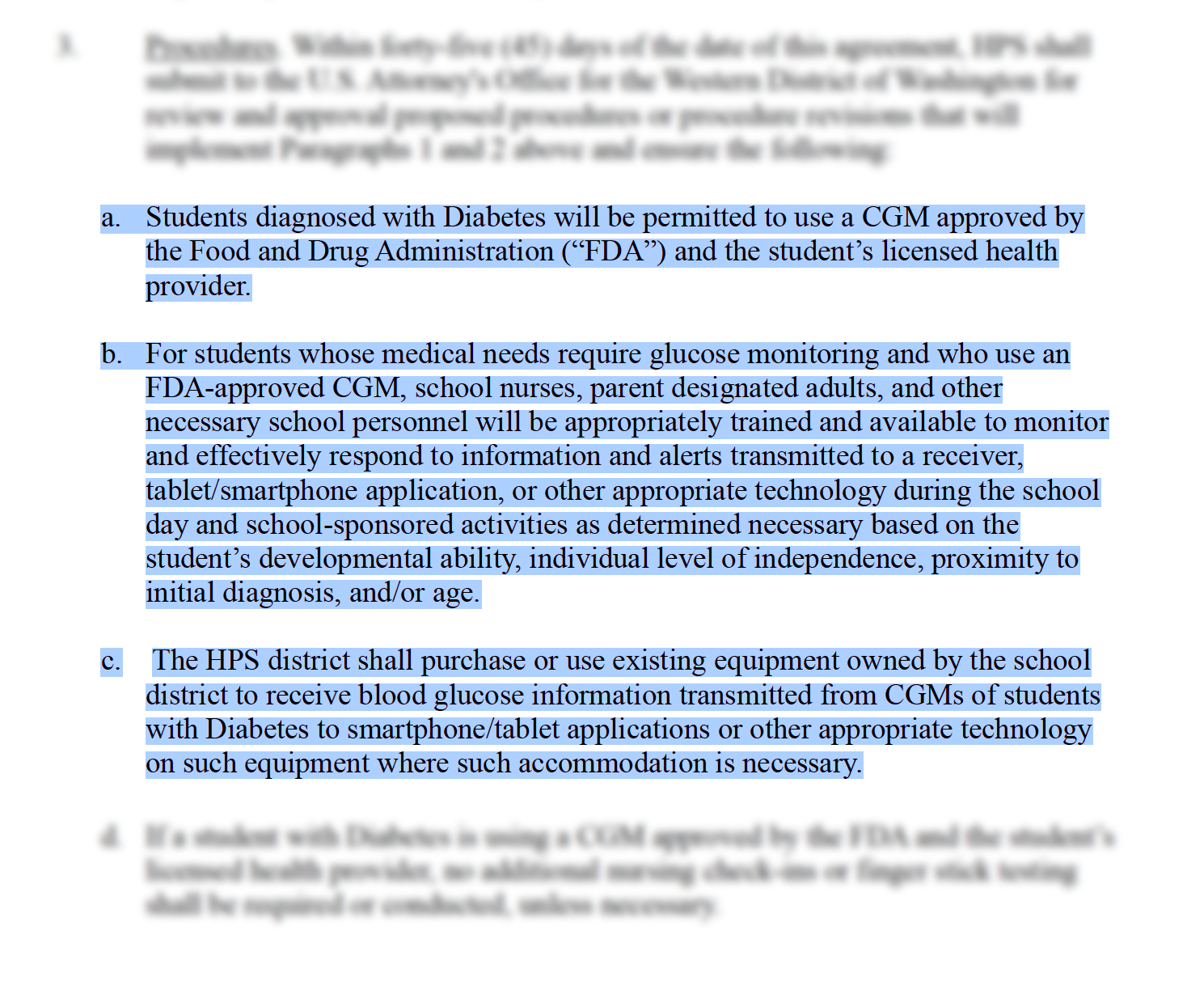Department of Justice (DOJ) Mandates :
Federal Interpretations of Reasonable Accommodations for Students with Diabetes under the Americans With Disabilities Act (ADA)
The DOJ has repeatedly affirmed that schools must provide remote monitoring when asked and must consider parental input on insulin dosing, in order to comply with the ADA.
Below are a growing list of settlement agreements from U.S. Attorney’s Offices across the country where remote monitoring and parental input on insulin dosing have been interpreted as reasonable accommodations. What is true for one state is true for all states under federal law. These letters can serve as powerful tools when advocating for your child’s rights at school.
2025
Middle District of Tennessee
Metro Nashville Public Schools Agrees to Settle Allegations It Violated the Americans with Disabilities Act by Discriminating Against Students with Type 1 Diabetes and to Modify Policies for Students with Type 1 Diabetes : CGM Monitoring is a Reasonable Accommodation
__________
Excerpt from Settlement Document:
Western District of Washington
ADA Closing Letter from U.S. Attorney: CGM Monitoring is a Reasonable Accommodation
__________
Excerpts from Settlement Document:
2020
District of Connecticut
ADA Closing Letters from U.S. Attorney: Federal Interpretation of CGM Monitoring as a Reasonable Accommodation
In 2020 the DOJ required four school districts to remote monitor alerts transmitted from the continuous glucose monitors (cgms) of students with T1D. In order to remain compliant with Americans with Disabilities Act they agreed to remote monitor cgms, train staff, and provide the device.
__________
Excerpt from Settlement Document:
District of Connecticut
ADA Closing Letter from U.S. Attorney: Parental Input on Insulin Dosing
__________
Excerpts from Settlement Document:










